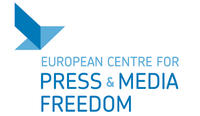
The Human Rights Watch report documents the hostile environment in which journalists work in Bosnia and Herzegovina, Kosovo, Montenegro and Serbia
Based on 86 in-depth interviews with media workers, this report documents the hostile environment in which journalists work in Bosnia and Herzegovina, Kosovo, Montenegro and Serbia. Journalists and editors interviewed described a difficult media space in which they faced threats, attacks, and other types of intimidation and interference with their work. They described recurring veiled and direct threats against them and family members, physical attacks on themselves and their workplaces, and even death threats. Many of the incidents of violence and intimidation documented appeared to be particularly directed against journalists who write stories implicating powerful business or political elites, or report on war crimes, high-level corruption, and radical religious groups.
In the past years nongovernmental organizations have been monitoring attacks and threats against journalists witnessing a notable increase in cyberattacks on news websites in the aftermath of critical stories, particularly in Serbia and Republika Srpska in BiH.
Attacks and threats may result in increased self-censorship, while ineffective state response has resulted in de facto impunity for most crimes against journalists.
Authorities downplay the seriousness of online threats journalists had experienced. Cases tend to drag on for years, creating an environment that can be used to the advantage of those who seek to stifle critical reporting through criminal acts of intimidation.
Political interference and financial pressure on media outlets and journalists is a serious problem in the Western Balkans. In some cases politicians pressured owners and editors to drop critical stories. More pervasive are efforts by public officials to muzzle critical media through financial pressures, either by cutting (or threatening to cut) state subsidies or by limiting state advertising. Journalists in all four Wester Blakans countries described being sued on a regular basis impeding their ability to spend time reporting, and being forced in some cases to pay legal fees and court-ordered damages. Journalists in BiH and Serbia also described government officials conducting arbitrary financial inspections without prior warning and checks of administrative documents to harass or intimidate them for critical reporting. Independent journalists and media outlets described being subjected to public smear campaigns by media close to the government, with articles depicting critical journalists as national traitors or through humiliating caricatures. In several cases articles about women journalists used vulgar imagery and sexually offensive language.
Prime minister of Montenegro Milo Đukanović and prime minister of Serbia Aleksandar Vučić have publicly accused journalists of acting on behalf of foreign interests.
Bosnia and Herzegovina, Kosovo, Montenegro, and Serbia have clear obligations under international and regional human rights law to respect and safeguard freedom of expression, media freedom, and media pluralism. In addition, the Copenhagen criteria applicable to states negotiating European Union accession—to which all four countries aspire—include respect for press freedom.
Relevant authorities in the four Western Balkan countries included in this report should take immediate steps to ensure that journalists can do their job safely and without improper government or third party interference. As part of this they should conduct prompt and effective investigations into crimes against journalists and bring those responsible to justice. High ranking government officials should also refrain from interfering with the media and instead publicly condemn crimes against journalists.
This publication has been produced within the project European Centre for Press and Media Freedom, co-funded by the European Commission. The contents of this publication are the sole responsibility of Osservatorio Balcani e Caucaso and its partners and can in no way be taken to reflect the views of the European Union. The project's page

 HRW: Media Freedom Under Attack in the Western Balkans
HRW: Media Freedom Under Attack in the Western Balkans





 All the contents on the Osservatorio Balcani e Caucaso website are distributed with a
All the contents on the Osservatorio Balcani e Caucaso website are distributed with a 